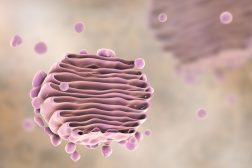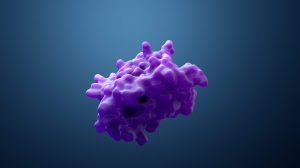Definition
Noun
A gram-negative mucoid cocci bacterium involved in several human infections including cerebrospinal fluid infections, meningitis and endocarditis.
Supplement
Neisseria mucosa has an adherent colonial morphology with nonpigmented and pigmented morphotypes and has the capability to reduce nitrates as well as to produce prolyl aminopeptidase. It is known to be a normal part of nasopharyngeal flora in human.
Neisseria mucosa has an immediate susceptibility to penicillin as well as vulnerable to amoxicillin, cefotaxime, ciprofloxacin and ceftriaxone.
Neisseria mucosa is associated in human infections includes meningitis, cerebrospinal fluid infection and infective endocarditis due to tongue piercing. A symptom manifested by an infected individual includes myalgia, fatigue, arthralgia and intermittent fever.
Scientific classification:
Kingdom: Bacteria
Phylum: Proteobacteria
Class: Betaproteobacteria
Order: Neisseriales
Family: Neisseriaceae
Genus: Neisseria
Species: Neisseria mucosa
See also:
• Bacteria
• Meningitis
• Endocarditis
Dictionary > Neisseria mucosa
You will also like...

Role of Golgi Apparatus & Endoplasmic Reticulum in Protein Synthesis
The endoplasmic reticulum and Golgi apparatus are the organelles involved in the translation step of protein synthesis a..

Protein Variety
The sequence of amino acids determines the type of protein. Protein is synthesized according to the sequence of nucleoti..

Plant Cells vs. Animal Cells
Plant cells have plastids essential in photosynthesis. They also have an additional layer called cell wall on their cell..

Leaves
Leaves are the major photosynthetic organ of a plant. Apart from that, they are also crucial to water movement. In this ..

Photosynthesis – Photolysis and Carbon Fixation
Photosynthesis is the process that plants undertake to create organic materials from carbon dioxide and water, with the ..

Origins of Life on Earth
Earth was created around 4.5 billion years ago and life began not long after. Primitive life likely possessed the elemen..

